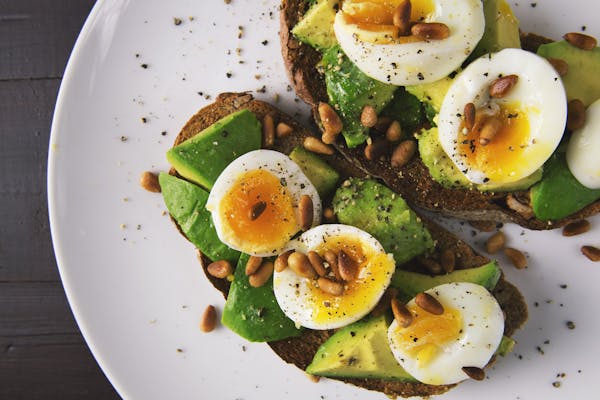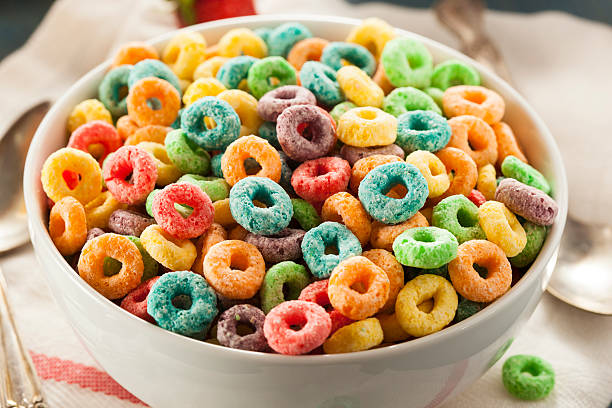Outline of the Article: Breakfast Foods to Eat and Avoid
Introduction
- Importance of breakfast for overall health
- How the right breakfast choices impact energy and metabolism
- Brief overview of foods to eat and avoid
Best Breakfast Foods to Eat
1. Whole Grains for Sustained Energy
- Oatmeal: High in fiber, keeps you full
- Whole wheat toast: Better than white bread
- Quinoa and brown rice: Alternative grains for breakfast
2. Protein-Packed Options
- Eggs: Rich in protein and nutrients
- Greek yogurt: High protein, gut-friendly probiotics
- Cottage cheese: Low-fat protein source
3. Fruits and Vegetables for Nutrients
- Bananas: Natural energy boosters
- Berries: Antioxidants and vitamins
- Spinach and kale: Good for smoothies and omelets
4. Healthy Fats to Start Your Day
- Avocados: Rich in healthy monounsaturated fats
- Nuts and seeds: Almonds, walnuts, chia, and flaxseeds
- Nut butters: Peanut and almond butter (without added sugar)
5. Dairy and Dairy Alternatives
- Low-fat milk: Provides calcium and protein
- Plant-based milk: Almond, soy, or oat milk for lactose-intolerant people
Worst Breakfast Foods to Avoid
6. Sugary Cereals and Pastries
- High sugar content leading to energy crashes
- Examples: Frosted cereals, donuts, muffins
7. Processed Meats and Fast Foods
- Bacon, sausages, and ham: High in saturated fats and sodium
- Fast food breakfast sandwiches: Unhealthy fats and preservatives
8. White Bread and Refined Carbs
- Causes blood sugar spikes and crashes
- Examples: Bagels, white toast, croissants
9. Flavored Yogurts and Sweetened Drinks
- High sugar content in flavored yogurts
- Fruit juices and sweetened coffee drinks as hidden sugar traps
10. Skipping Breakfast: The Worst Choice
- How skipping meals affects metabolism
- Leads to overeating later in the day
Conclusion
- Summary of healthy and unhealthy breakfast choices
- Tips for a balanced and nutritious breakfast
FAQs
- What is the healthiest breakfast option?
- Can I eat eggs every day for breakfast?
- Is coffee good or bad for breakfast?
- What are quick but healthy breakfast ideas?
- Are protein bars a good breakfast choice?
Breakfast Foods to Eat and Avoid

Introduction
Breakfast is often called the most important meal of the day—and for good reason. It sets the tone for your energy levels, metabolism, and overall health. Eating the right foods in the morning can help you stay full longer, maintain steady blood sugar levels, and improve focus. However, choosing unhealthy breakfast options can lead to energy crashes, weight gain, and even long-term health issues.
In this article, we’ll dive into the best breakfast foods to eat and the worst ones to avoid, helping you make smarter choices to kick-start your day!
Best Breakfast Foods to Eat
1. Whole Grains for Sustained Energy
If you want to stay energized throughout the morning, whole grains should be a staple in your breakfast. Unlike refined grains, whole grains are packed with fiber, keeping you full for longer and preventing blood sugar spikes.
- Oatmeal: One of the best breakfast choices, oatmeal is rich in fiber, particularly beta-glucan, which helps lower cholesterol and improve heart health. Add nuts, fruits, or a drizzle of honey for extra flavor and nutrition.
- Whole Wheat Toast: Swapping white bread for whole wheat toast provides more fiber, vitamins, and minerals. Pair it with avocado, nut butter, or eggs for a balanced meal.
- Quinoa and Brown Rice: Not your traditional breakfast foods, but these grains can be used in breakfast bowls with fruits and nuts for a nutritious twist.
2. Protein-Packed Options
Protein is essential for muscle repair, keeping you full longer, and providing sustained energy.
- Eggs: A powerhouse of protein, eggs are packed with essential nutrients like choline, which supports brain health. Boiled, scrambled, or poached—eggs make a fantastic breakfast choice.
- Greek Yogurt: Higher in protein than regular yogurt, Greek yogurt is great for gut health due to its probiotics. Choose unsweetened versions and add fresh fruits or nuts for a natural sweetness.
- Cottage Cheese: A low-fat, protein-rich option that can be paired with fruits or whole-grain toast for a delicious meal.
3. Fruits and Vegetables for Nutrients
Adding fruits and vegetables to your breakfast ensures you get essential vitamins, minerals, and fiber.
- Bananas: Loaded with potassium, bananas provide a quick energy boost. They pair well with nut butter or yogurt.
- Berries: Blueberries, strawberries, and raspberries are rich in antioxidants, which help fight inflammation and support brain function.
- Spinach and Kale: Leafy greens are nutrient-dense and work well in smoothies, omelets, or breakfast wraps.
4. Healthy Fats to Start Your Day
Healthy fats keep you full and support brain function.
- Avocados: A great source of monounsaturated fats, avocados keep you satisfied and support heart health. Try them on whole-grain toast with eggs or as a smoothie ingredient.
- Nuts and Seeds: Almonds, walnuts, flaxseeds, and chia seeds are packed with omega-3 fatty acids, fiber, and protein. Sprinkle them over yogurt or oatmeal.
- Nut Butters: Opt for natural peanut or almond butter without added sugars and preservatives for a nutrient-dense spread.
5. Dairy and Dairy Alternatives
Dairy can be a great source of protein and calcium if chosen wisely.
- Low-Fat Milk: A good source of protein, calcium, and vitamin D.
- Plant-Based Milk: Almond, soy, or oat milk are great alternatives for those who are lactose intolerant.
Worst Breakfast Foods to Avoid

6. Sugary Cereals and Pastries
Many breakfast cereals and pastries contain excessive sugar, leading to energy crashes and weight gain.
- Frosted Cereals: Most commercial cereals contain high amounts of sugar and little fiber. Instead, choose plain oats or whole-grain cereals.
- Pastries, Donuts, and Muffins: High in refined sugar and unhealthy fats, these options spike blood sugar and cause energy crashes.
7. Processed Meats and Fast Foods
- Bacon, Sausages, and Ham: Processed meats are high in sodium, unhealthy fats, and preservatives, increasing the risk of heart disease.
- Fast Food Breakfast Sandwiches: Often loaded with saturated fats and empty calories, making them a poor breakfast choice.
8. White Bread and Refined Carbs
White bread lacks fiber and essential nutrients, causing quick blood sugar spikes.
- Bagels, Croissants, and White Toast: Choose whole-grain options instead to stay full longer.
9. Flavored Yogurts and Sweetened Drinks
- Flavored Yogurt: Often contains as much sugar as a candy bar! Stick to plain Greek yogurt.
- Fruit Juices and Sweetened Coffees: These drinks are loaded with sugar, leading to energy crashes.
10. Skipping Breakfast: The Worst Choice
Not eating breakfast can slow metabolism and lead to overeating later in the day. A balanced meal is always a better choice than skipping breakfast.
Conclusion
Choosing the right breakfast can make a big difference in your health, energy levels, and weight management. Stick to whole grains, lean proteins, healthy fats, and fresh fruits while avoiding sugary, processed, and refined foods.
FAQs
- What is the healthiest breakfast option?
- A balanced meal with whole grains, protein, healthy fats, and fruits.
- Can I eat eggs every day for breakfast?
- Yes, in moderation, as they provide essential nutrients.
- Is coffee good or bad for breakfast?
- Black coffee is fine, but avoid sugary lattes.
- What are quick but healthy breakfast ideas?
- Oatmeal, yogurt with fruits, eggs with whole wheat toast.
- Are protein bars a good breakfast choice?
- Only if they are low in sugar and made with whole ingredients.
Breakfast foods to eat and avoid ↗
Many people wonder: Is breakfast really the most important meal of the day?
Plenty of studies have been conducted on whether breakfast is necessary. The consensus is yes, breakfast is important and what you choose for breakfast is even more important.
Keep in mind, a study was published a few years ago that breakfasts high in refined sugars and carbohydrates can do more damage than good.
UC Davis Health registered dietitian Melinda Gong helps you make sense of the breakfast debate.
How can breakfast benefit your health? ↗
Eating breakfast regularly has been shown to help reduce the risk of developing type 2 diabetes, cardiovascular disease, and obesity. There’s also evidence that eating a healthy breakfast helps with brain function, especially memory and focus.
Can breakfast make you gain weight? ↗
Some evidence shows that eating breakfast may lead to eating a few more calories in a day. It’s important to balance calories throughout the day. If you choose to eat breakfast, divide your food intake (calories) evenly between all your meals.



